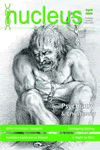How should we live? Everyone has ideas about this, from George W Bush vowing to defend ‘the American way of life’ to the Taliban destroying images of Buddha. It is easy to see how people differ from yourself, but these differences often feel like deviations from the norm - ‘surely I don’t have a worldview, I see things as they are!’ Questioning your own foundational values is like looking at your own contact lenses, but it’s important. The Bible tells us in Ephesians 5:15 ‘Be very careful, then, how you live – not as unwise but as wise’. People who follow the status quo without questioning the ideas that influence them are known as sheep – animals not renowned for their wisdom. This book helps you get wise.
James Sire explores a number of worldviews using questions such as ‘What is the nature of reality?’ and ‘How can we know right and wrong?’ Sire wanders through Western European history tracing the transformation of the zeitgeist (spirit of the age) from Christianity to postmodernism. It is fascinating to see how ideas have developed; once people began to question God’s character, theism became deism, where God set the universe in motion but did not interact with it. From this it was easy to question God’s existence and propose evolution, an impersonal force, as the origin of life, turning deism into naturalism.
The wealth of ideas is amazing yet the author manages to make sense of big concepts in small sentences: ‘God’s goodness is expressed in two ways, through holiness and through love’ (p25). Similarly, the structure is user-friendly; you don’t need a philosophy degree, and words like existentialism get explained.
The chapters on Eastern and New Age thought are hard going and concepts such as epistemology can be confusing (how do we know what we know?), but The Universe Next Door does not get bogged down in intellectualism. Constant references to cultural works, from The Communist Manifesto to The Hitchhiker’s Guide to the Galaxy keep it rooted in reality and capture your interest.
This is definitely a book to mull over and makes a great springboard for further reading with its extensive bibliography. Personally, I found myself questioning my mindset – am I more of a deist than a theist? Do I judge God’s character from the world around me or from the Bible? Does my relationship with him affect my life more than the culture around me does?
So, a recommended read, but be prepared for more questions than answers.
Reviewed by Helen Stedeford is a medical student at Leicester University































